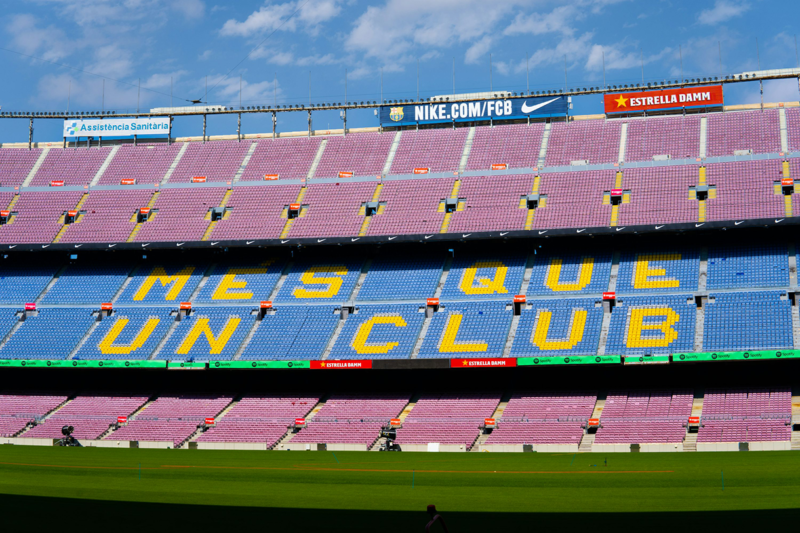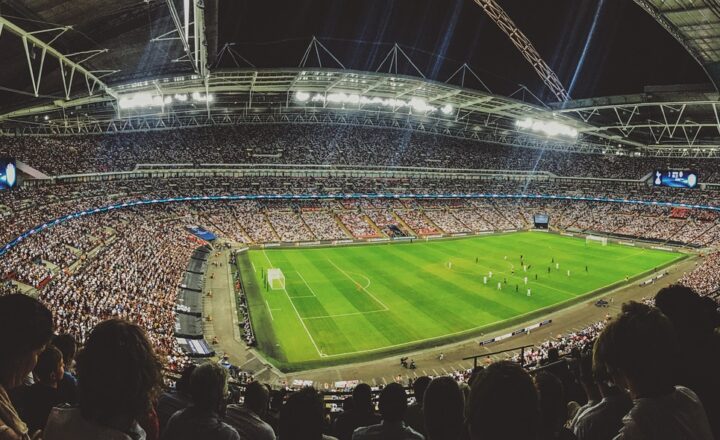
Founded in 1899 by Swiss, English, and Catalan players led by Joan Gamper, Barcelona Football Club, often simply known as Barça, has grown into one of the most iconic and successful clubs in the world. With its motto “Més que un club,” Barcelona represents not just a soccer team but a symbol of Catalan identity and pride. The club is renowned for its commitment to a unique playing style and its remarkable achievements in both domestic and international competitions.
Founding and Early Years
Barcelona FC was established on November 29, 1899, and quickly became a key player in Spanish soccer. In its early years, the club won several Catalan championships, setting the foundation for its future success. Joan Gamper, one of the founding members, played a crucial role in promoting the club and securing its financial stability.
By the 1920s, Barcelona had become a dominant force in Spanish soccer, winning numerous Copa del Rey titles. These early victories helped establish the club’s identity as a powerhouse and fostered a deep connection with the local community.
Barcelona’s La Liga Dominance and Rivalries
Barcelona has claimed 27 La Liga titles and 31 Copa del Rey trophies, marking it as one of the most successful clubs in Spanish soccer history. The intense rivalry with Real Madrid, known as El Clásico, is one of the sport’s most anticipated matches. This rivalry transcends soccer, representing political and cultural differences between Catalonia and the rest of Spain.
The club’s success in La Liga has been driven by a combination of talented players, innovative tactics, and a relentless pursuit of excellence. This commitment to success has cemented Barcelona’s place at the top of Spanish soccer.
Champions League Glory and European Success
Barcelona’s achievements extend beyond Spain; the club has won the UEFA Champions League five times, with victories in 1992, 2006, 2009, 2011, and 2015. These triumphs have solidified Barcelona’s status as one of Europe’s elite clubs.
Memorable Champions League moments, such as the 6-1 comeback against Paris Saint-Germain in 2017, have thrilled fans and showcased the team’s resilience and skill. These European campaigns have not only brought trophies to Barcelona but also demonstrated the club’s ability to compete with the best teams in the world.
Legendary Players and Managers
Barcelona has been home to some of the most iconic players in soccer history. Johan Cruyff, who joined the club in the 1970s, not only dazzled fans with his skills but also influenced the club’s philosophy and playing style. In the early 2000s, Ronaldinho brought flair and joy to the pitch, becoming a fan favorite.
Perhaps no player has left a greater mark on Barcelona than Lionel Messi. Widely regarded as one of the greatest players of all time, Messi spent over two decades at the club, leading it to numerous titles and breaking countless records. Managers like Pep Guardiola have also played a crucial role in shaping Barcelona’s identity, with Guardiola’s tenure marked by the dominance of the “tiki-taka” style.
Camp Nou: The Heart of Barcelona FC
Since 1957, Camp Nou has been the home of Barcelona FC. With a seating capacity of over 99,000, it is the largest stadium in Europe and an iconic venue in the world of sports. Camp Nou is more than just a stadium; it is a symbol of the club’s legacy and a gathering place for fans from around the world.
The stadium has hosted countless historic matches and is set to undergo renovations to improve facilities and enhance the fan experience. These plans reflect the club’s commitment to maintaining Camp Nou as a top venue for decades to come.
Barcelona’s Unique Playing Style and Philosophy
Barcelona is renowned for its “tiki-taka” playing style, characterized by quick, short passes and a focus on maintaining possession. This approach has been instrumental in the club’s success and is rooted in the teachings of Johan Cruyff and the development of La Masia, Barcelona’s famed youth academy.
La Masia has produced some of the world’s top players, including Xavi, Andrés Iniesta, and Messi. The academy’s emphasis on technical skill, teamwork, and understanding of the game has allowed Barcelona to maintain a consistent style and identity, even as players and managers come and go.
Financial Strength and Global Brand
Barcelona is one of the richest soccer clubs globally, with revenue generated from matchday sales, broadcasting rights, sponsorships, and merchandise. The club’s commercial success has been bolstered by partnerships with major brands like Nike and Rakuten, helping to expand its global reach.
Barcelona’s popularity extends to social media, where it has one of the largest followings of any sports team. This global presence allows the club to connect with fans worldwide and solidify its status as a global sports brand.
Challenges and Future Outlook
In recent years, Barcelona has faced financial challenges, partly due to the economic impact of the COVID-19 pandemic. The club has undertaken restructuring efforts to reduce debt and regain financial stability. Looking forward, Barcelona aims to rebuild its squad with a mix of emerging talents and strategic signings.
Despite these challenges, Barcelona remains committed to its core values and playing style. The club’s focus on youth development and innovative tactics ensures that it will continue to be a significant force in world soccer.
Conclusion: Barcelona’s Enduring Legacy
Barcelona Football Club is more than just a soccer team; it is a cultural institution and a symbol of Catalan pride. With a rich history, an iconic playing style, and a commitment to excellence, Barcelona continues to inspire fans around the world. As the club navigates the future, its legacy as one of the most celebrated teams in soccer is assured.







